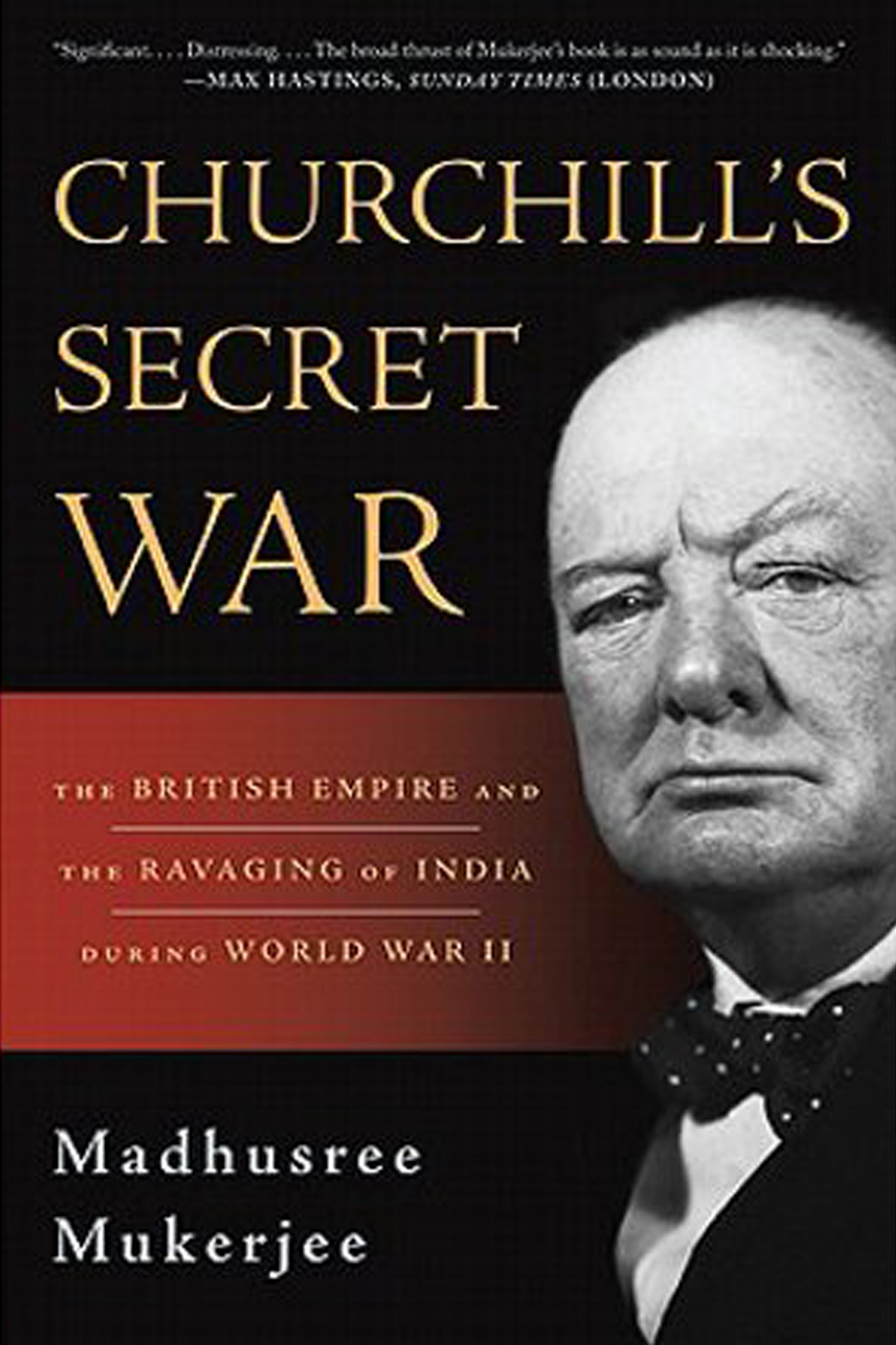Coincidentally, I started reading this book two days before an MEP from Scotland called Churchill a ‘white supremacist mass murder’ on twitter – a statement I already agreed with from what I knew of him. I didn’t start this book completely uninformed, I certainly didn’t think much of Churchill beforehand, knowing what I did about his opinions on India (amongst other places and people), and I had heard the odd quote from Amery in passing, however, reading Madhusree Mukerjee’s book was eye-opening and the extent of which the Bengali famine could have been avoided, is both heart breaking and infuriating. Even more so within the context of the British cultural show of admiration for a man who deserves nothing but condemnation for being a racist, imperialist piece of scum.
It is a tough a read. It took me over a month, stopping and starting when it got too heavy and the statistics tired me down. I guess that is the nature of a book like this. The book is filled with sources and footnotes; however, I have to be honest and say I have not checked these sources so can’t confirm their reliability. However, the fact that are so many provided, from so many different sources, certainly seems a good thing; maybe one day I will get around to looking at the primary sources. The author, who is Indian herself, also talks to survivors of the famine and relatives, which adds a more personal touch to a very dense book.
The books main focus is on the Bengali famine of 1943, where according to most sources, roughly 3 million people died. Mukerjee analyses the British response regarding food shortages at the time – many of the issues leading to which were caused by prior British policies and also the general disdain members of the British government felt for South Asians which lead to a lack of action. However, the book also looks at this within the wider context of World War Two and at British policy in India on a broader scale, including the potential invasion of Japanese ships, British efforts to divide religious persons to try to combat opposition to colonial rule and India’s huge contributions to the war effort.
Between Churchill and his aide, Cherwell, a eugenics fan and supremacist himself, it is clear that their neglect of this issue was not based on either ignorance nor necessity (whatever that actually means…but that’s a whole other blog post) but their racist, colonial attitudes and their personal hatred towards Indian people, particularly Hindus. This tragedy could have been prevented at numerous times by the British government but it was allowed to take place due to ideological reasoning, convenience and a desire to discredit, and weaken those who opposed British rule. Of course, this attitude wasn’t exclusive to India, it is part of Churchill’s wider attitude towards colonised peoples, the working-class and anyone who was non-white.
As I say, this is a tough read and it isn’t a pleasant read either. However, in my opinion this is an important book about a subject that is often overlooked or defended as a necessary tragedy. I would recommend this book to anyone who is British or has an interest in learning more about the horrors of British imperialism; this book is about a man who is often idolised by politicians and media and a lot of discourse is left behind in favour of the old troupe ‘he fought the Nazi’s so he must be great’. I can’t imagine anyone reading this review is a fan of Churchill anyway, but for a more in-depth analysis of his role in the famine of 1943 this is book is great addition. ■
NorthernJam is an Anarchist and Feminist from reet up North. Passionate about cross stitching, reading and the downfall of the white supremacist capitalist patriarchy.
Churchill’s Secret War. Published by Tranquebar Press 2010 . Written by Madhusree Mukerjee.

